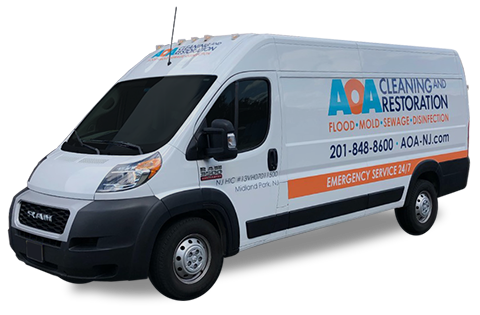Knowing when to clean your sewer line is key to a well-working plumbing system. Experts say to clean it every 18 to 22 months. This is about once a year and a half to two years. Doing this regularly stops big clogs and saves you from costly repairs.
Keeping your sewer line clean means being proactive. You need a plan based on your home’s size and how much you use it. Watch for signs like bad smells, slow drains, and weird noises. For example, AOA Cleaning and Restoration offers a special deal to clear your sewer line if you have a sewer back up restoration issue.
Businesses, especially risky ones like restaurants and hotels, need to clean more often. Homeowners in big homes should clean theirs every two years. Signs like water around basement drains or bad smells mean it’s time to act fast.
In short, cleaning your sewer line every 18 to 24 months keeps your plumbing running smoothly. Things like how old your plumbing is and how many people live with you matter. Keeping your sewer line clean stops problems before they start, making your plumbing system efficient.
Understanding Your Sewer Line and Its Importance
A home’s sewer line is key to its plumbing system. It’s usually four to six inches wide and slopes downward. It connects the home’s drains to the main sewer for wastewater treatment. Homeowners must keep these lines clean to avoid problems.
Knowing when to clean your sewer line is crucial. Clogs can come from grease, hair, and more. Regular cleaning helps avoid these issues.
Keeping your sewer line clean prevents clogs and backups. Backups can lead to expensive repairs and health risks. Regular checks can catch problems early.
How often to clean your sewer line depends on your home. Experts suggest yearly checks. Look out for signs like slow drains or bad smells to know when to clean.
Homeowners can prevent problems with simple steps. Check for leaks and use a drain snake to clear blockages. Flushing your system monthly and avoiding grease in drains helps too.
By following these cleaning tips, you can keep your plumbing system working well. This saves you from costly and stressful sewer line issues.
How often should I clean my sewer line?
How often you should clean your sewer line depends on how much you use it and the state of your plumbing. It’s wise to clean it every 18 to 22 months. If you live in an old house or have plumbing problems often, you might need to do it more.
Watch for signs that your sewer line needs cleaning. These include:
- Recurring drain clogs
- Water backing up when using multiple fixtures
- Slow draining water
- Foul odors from drains
- Gurgling sounds from pipes
- Overflowing toilets
- Mold growth
By noticing these signs, you can take care of your sewer line before it gets worse. Using services like hydro-jetting can clear out pipes and stop debris from building up. This keeps your sewer system working well for longer.
Regular maintenance stops backups and helps with drainage during storms. Cleaning your sewer line every one to two years and getting a maintenance plan helps catch small problems early. This saves money and ensures your plumbing is always in top shape.
Doing some maintenance yourself, like using baking soda and vinegar, or applying enzymatic cleaners monthly, can help. But, it’s important to have professionals check your sewer line too. They can find and fix deeper problems like sediment buildup and tree roots.
Best Practices for Sewer Line Maintenance in NJ
Keeping your sewer lines clean is key to avoiding expensive repairs. It also keeps your plumbing running smoothly. Here are some top tips for sewer line cleaning and upkeep:
- Proper Grease Disposal: Don’t pour grease or fat down the drain. They can solidify and block pipes.
- Use of Drain Covers: Use drain covers in showers and sinks. They catch hair and soap scum, preventing pipe buildup.
- Flush Only Toilet Paper: Only flush toilet paper and human waste. This avoids clogs.
- Install a Water Softener: A water softener reduces hard water minerals. This prevents mineral buildup in pipes.
- Monthly Drain Rinsing: Flush drains with hot water monthly. This dissolves minor clogs.
- Replace Old Pipes: Replace corroded or old pipes. They can accumulate debris and cause blockages.
Regular upkeep and attention are crucial. Here are more sewer line maintenance tips to spot and fix problems early:
- Annual Inspections: Get yearly checks by skilled plumbers. They can find issues like tree root infiltration or mineral buildup.
- Early Warning Signs: Watch for signs like foul odors, slow drains, and gurgling sounds. These indicate sewer line problems.
Knowing about sewer line cleaning methods is important. Here are a few:
- Snaking: Uses an auger to clear clogs.
- Hydro Jetting: Cleans pipes with high-pressure water.
- Chemical Treatment: Dissolves clogs and buildups with chemicals.
- Trenchless Repair: Fixes pipes with minimal digging.
Choosing professional services for homeowners requires careful steps:
- Reading Reviews: Look at what others say.
- Comparing Prices: Make sure it’s cost-effective.
- Understanding Methods: Know the cleaning techniques used.
- Ensuring Availability: Check if the service is available when needed.
By following these sewer line cleaning and maintenance tips, homeowners can extend their plumbing system’s life. This also reduces the chance of plumbing emergencies.
Conclusion
Keeping your sewer line healthy is crucial for any home. Cleaning it regularly, at least once a year, is key. This helps avoid expensive repairs and keeps your plumbing working well.
Ignoring your sewer line can lead to big problems. You might face slow drains, less water flow, and pipe damage. If you notice any issues, clean it more often to prevent major problems.
Getting help from experts like our team of professionals at AOA Cleaning and Restoration in North New Jersey is smart. We offer effective solutions and keep your home safe from bad conditions and backups. Cleaning your sewer line every 1 to 2 years is usually enough to prevent clogs.
Look out for signs like slow drains, clogs, bad smells, gurgling sounds, and water in your yard. These can mean it’s time for a cleaning. Using water-saving fixtures can also help reduce waste and prevent clogs. By following these steps, you can keep your sewer line in top shape, protecting your home and saving money.




















